A Closer Look at America’s ‘Nones’
What does the country’s fastest-growing group really believe?
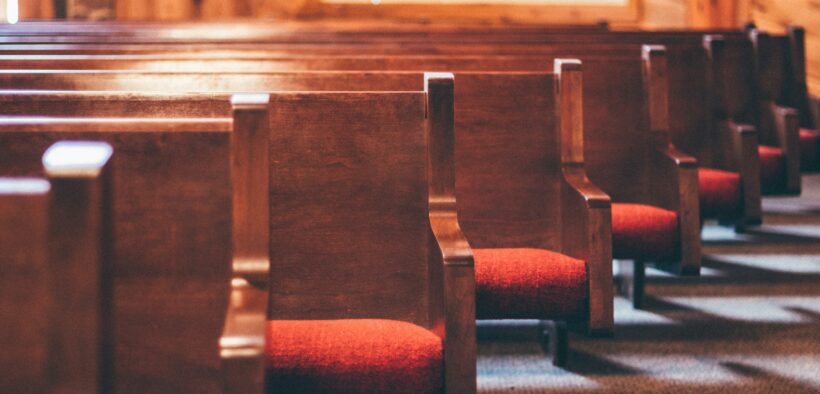
NEW YORK — Americans dubbed “nones’’ — those who are atheists, agnostics or not religiously affiliated with any faith — remain a large segment of the U.S. population and what they believe could very well impact the country’s future, a new study released Wednesday reveals.
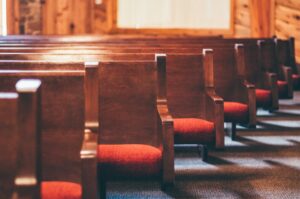
The decades-long rise of the “nones” — a diverse and often hard-to-define group — has been one of the most talked about phenomena in the United States within religious and political circles.
In 2007, for example, nones made up just 16% of the population, but Pew Research Center’s new survey of U.S. adults shows that number has risen dramatically in recent years. The number reached 30% in 2022, but dropped to 28% last year.
“So, although it’s possible that the ‘nones’ have leveled off, it’s also possible that their growth has continued, but at a gradual pace that is difficult to see in the data due to the natural fluctuations that can occur in survey estimates,” the study said. “For example, there was a prior, slight dip in religious ‘nones’ in 2016, quickly followed by a resumption of the long-term, upward trend.”
At the same time, Pew attempted to drill down into what “nones” believe, their feelings towards organized religion and their context within American life and politics.
For example, most “nones,” the study found, believe in a “higher power” aside from God of the Bible, but few attend any kind of religious service. About half said spirituality is “very important in their lives.”
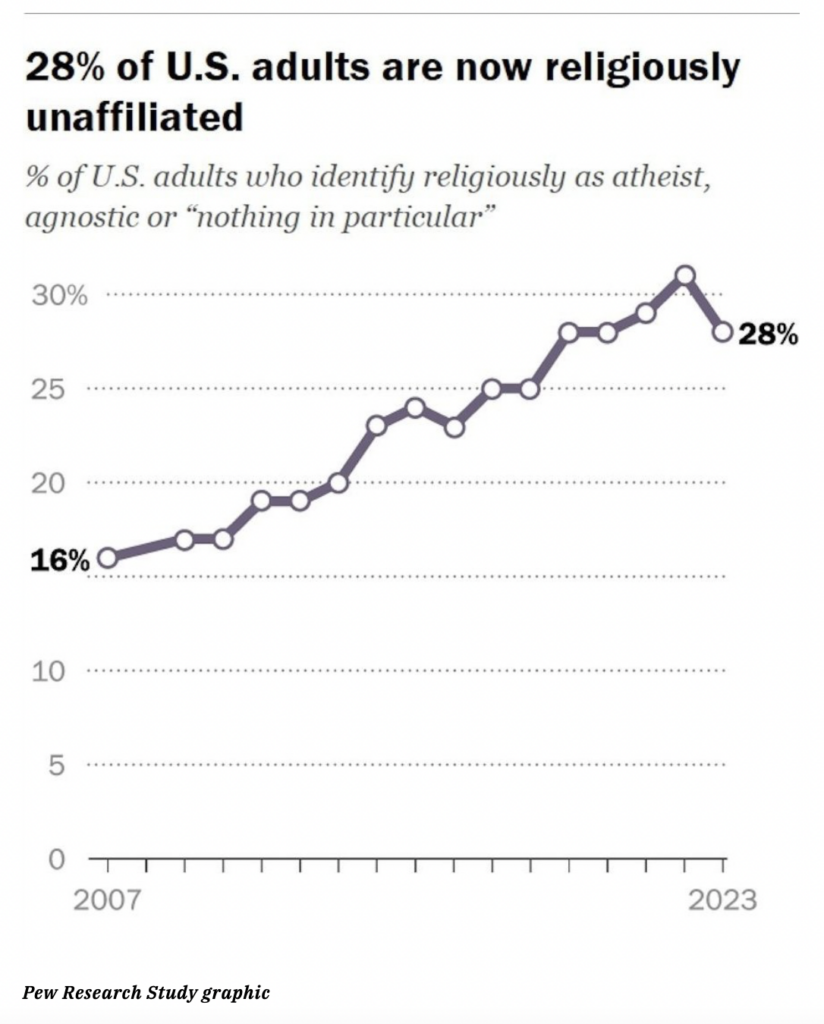
In Pew’s latest data, 17% of “nones” identified as atheist, 20% said agnostic and 63% said “nothing in particular.”
“Nones” are also not hostile towards faith: 58% said religion helps society by giving people meaning and purpose.
“Most ‘nones’ say they were raised in a religion, usually Christianity,” the study added. “Yet today, they tend to be disconnected from religious institutions. Not only have they shaken off religious labels, they also have largely shaken off involvement in churches, synagogues, mosques and other religious organizations.”
Many were critical of religious institutions or people, including 47% who said “that one extremely or very important reason why they are not religious is that they dislike religious organizations.”
Another 30%, the survey found, said “bad experiences they’ve had with religious people” made them nonreligious.
Another survey, published this past October by The Associated Press-NORC Center for Public Affairs Research, mirrored this latest Pew study, saying 30% of U.S. adults claimed no religious affiliation.
Less civic engagement
Religious “nones” are less civically engaged and socially connected than people who identify with a religion.
On average, they are “less likely to vote, less likely to have volunteered lately, less satisfied with their local communities and less satisfied with their social lives,” the survey found.
For example, 27% of “nones” and 30% of religiously affiliated Americans said they contacted an elected official or attended a government meeting in the past year.
In another measure, religiously affiliated people who attend services at least once a month volunteer at much higher rates (41%) than both religiously affiliated people who don’t attend services regularly (17%) and “nones” (also 17%).
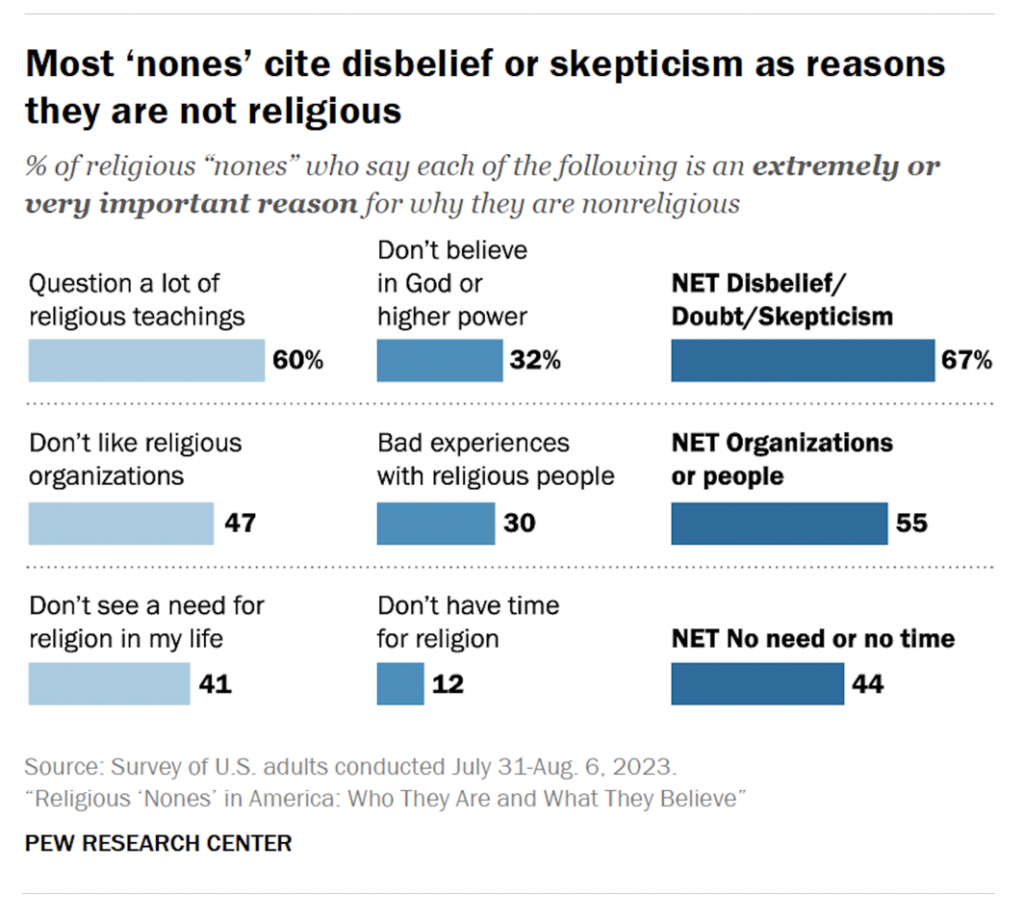
Gregory Smith, the lead researcher on the Pew study titled “Religious ‘Nones’ in America: Who They Are and What They Believe,” said “nones” could nonetheless affect American politics and even this current presidential election cycle.
“We know politically for example,” Smith told NPR, “that religious Nones are very distinctive. They are among the most strongly and consistently liberal and Democratic constituencies in the United States.”
By contrast, the political power of evangelicals could dwindle as their numbers fall, while “nones” grow as a demographic and voting group.
The new study found that 69% of “nones” are younger than 50 — compared to 45% of U.S. adults who identify with a faith tradition.
Secularization and views on morality
The majority of “nones” say it is “possible to be moral and have good values without believing in God.” Most religiously affiliated people agreed, the survey found, by a smaller margin.
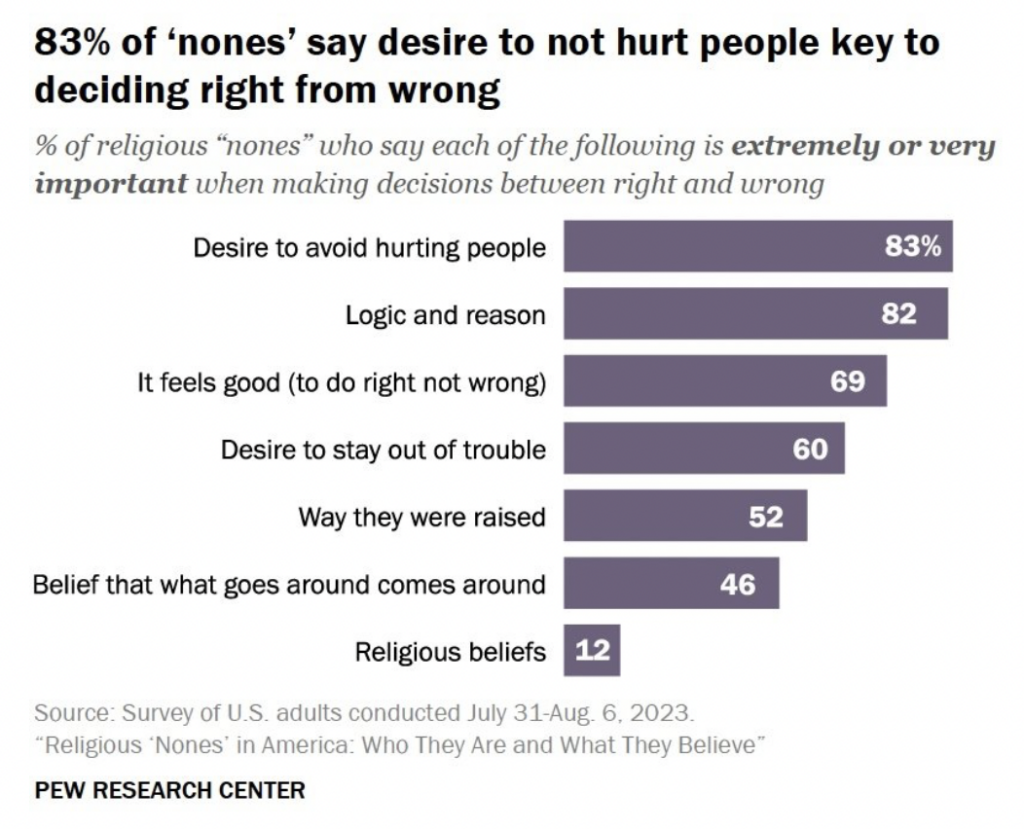
Asked how they decide between right and wrong, 83% of “nones” said “the desire to avoid hurting other people” was a key factor. But 82% of “nones” say “logic and reason” are also “extremely or very important” when deciding right from wrong.
Much of the analysis in the Pew Research Center report comes from a survey conducted from July 31-Aug. 6, 2023, among 11,201 respondents who are members of the Center’s American Trends Panel (ATP).
The survey also included interviews with 3,317 religious “nones” (658 atheists, 678 agnostics and 1,981 respondents who describe their religion as “nothing in particular”).
Main photo: Photo by Andrew Seaman / Unsplash
This article was originally published by Religion UnPlugged.



